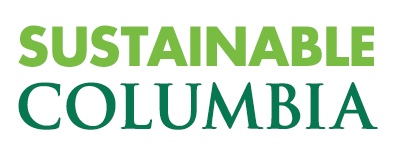Sustain What? How to Hold Difficult, But Necessary, Conversations - A Thriving Online Election Special
Thriving Online is Andy Revkin’s weekly brainstorm with innovators & skill builders making the most of our wondrous, but imperiled, communication environment.
One of the hardest tasks, in person or online, is holding constructive conversations amid seemingly intractable conflict. This webcast is the first in what will be a regular series on difficult conversations.
This Election edition features Peter Coleman of Columbia University’s Difficult Conversations Lab; the journalist Amanda Ripley, who wrote a pioneering Solutions Journalism primer for reporters on how to cover complex conflict; and Reggie Harris and Wallis Raemer, descendants, black and white, of the slaveholder Williams Carter Wickham, whose statue was toppled in Richmond, Virginia, in June.
Harris, a black songwriter, storyteller and educator, and Raemer, a white retired educator, are part of a group within Wickham's descendants that - for several years prior to this summer's protests - had been seeking, through legal means, to have the statue removed from public land.
Here's a feature in the The New York Times centering on the learning journey of Wickham descendants: http://j.mp/wickhamfamilyjourney
Here's more on Reggie Harris, a longtime songwriter, storyteller and educator:
http://reggieharrismusic.com
Across several centers at Columbia University, Peter Coleman applies insights from science to advance peace, constructive conflict and social justice. His latest book is "Making Conflict Work." He founded Columbia's Difficult Conversations Lab. Explore here: https://j.mp/34vKOmI
Amanda Ripley is a seasoned journalist and author. https://www.amandaripley.com/
Her much-read 2018 essay for the Solutions Journalism Network explored how journalists can break reporting and writing habits that have tended to intensify, rather than offer nuance, around charged issues: "Complicating the Narratives - What if journalists covered controversial issues differently — based on how humans actually behave when they are polarized and suspicious?" http://bit.ly/2RzH8vj
These conversations are produced and run by Andrew Revkin, founding director of the Earth Institute Initiative on Communication and Sustainability.
To support this initiative or send feedback and ideas, click here: http://j.mp/sustainwhatfeedback
